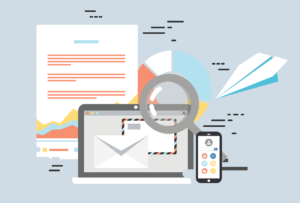
Legal Considerations in Smart Home Technology: Navigating Privacy and Liability
Navigating privacy and liability legal considerations in smart home technology is a modern necessity. After all, understanding these legal considerations is necessary for users to ensure compliance and mitigate risks!
Regulatory framework for smart home technology
If you want to tackle legal considerations in smart home technology, you must improve your legal understanding of the regulatory framework. Understanding the regulatory framework is important for both manufacturers and consumers. This framework encompasses various laws and regulations, such as the GDPR and CCPA, designed to protect consumer privacy. Compliance requirements necessitate transparency and disclosure from manufacturers, ensuring people know how their data is handled. Furthermore, people have rights under different regulations, emphasizing the importance of understanding these laws. Manufacturers can build consumer trust and mitigate legal risks by adhering to compliance standards. Navigating this framework requires diligence and legal comprehension to ensure compliance across different jurisdictions. Therefore, staying informed about regulatory developments and seeking counsel are important steps.
Liability issues for smart home devices
Product liability concerns arise from these devices’ potential defects or safety risks. That highlights the need for manufacturers to uphold rigorous quality standards! Furthermore, the possibility of misuse or malfunction underscores the importance of mitigating risks through proper maintenance and usage guidelines. Similarly, this is an important thing to keep in mind for navigating legal issues in tenancy. By understanding liability issues, people can take proactive steps to minimize their exposure to them. Seeking professional guidance and staying informed about relevant laws and regulations can also help manufacturers and users navigate the complex legal landscape surrounding smart home technology.
User consent and control over data
When it comes to smart home technology, ensuring user consent and control over data is a priority. Users need to understand how smart devices collect and utilize their data. Opt-in mechanisms provide users with the choice to deliberately share their personal information. Moreover, facilitating data access and deletion rights empowers users to maintain control over their data at all times. Smart home users can safeguard their privacy and maintain control over their personal information by prioritizing these measures. This approach fosters trust between users and manufacturers, enhancing the overall user experience and promoting responsible data practices in the smart home ecosystem. However, if you’re in a flat or similar shared space, you must also update any roommates you might have on the matter.
Impact of smart home technology on insurance
The impact of smart home technology on insurance is significant, with insurers adapting to new risk assessments and premiums. Integrating these devices with insurance policies can incentivize safer behavior and risk reduction. However, insurers must also consider potential risks associated with these devices, such as the risk of electrocution. That requires insurers to evaluate the coverage level provided for related incidents carefully. By addressing these concerns, insurers can better meet the evolving needs of homeowners while effectively managing risks associated with the new technology.
Furthermore, homeowners can benefit from reduced premiums by adopting devices that enhance home security and safety. Nevertheless, if you’re just moving into a new space, Golans Moving and Storage, a reliable moving company that also offers safe storage solutions, recommends placing your smart tech into storage until you settle into your new home and hire a pro to install it. Otherwise, you risk damaging it during this transit, in which case the insurance won’t cover it.
Contractual agreements and terms of service
Contractual agreements and terms of service are interesting legal considerations. First, users must thoroughly review and understand these agreements before engaging with their devices. Understanding the legal implications of user agreements ensures that people know their rights and obligations! Similarly, limitations of liability and dispute resolution clauses should be carefully considered to protect both parties’ interests. Ensuring fairness and transparency in contracts is crucial, as legal standards for enforceability vary. Looking for professional guidance when drafting or reviewing contracts can help ensure fairness. Of course, try to look for transparent and fair contractual agreements for a positive user experience.
Jurisdictional differences in smart home regulation
Jurisdictional differences in smart home regulation pose certain uncertainties. Privacy laws vary across jurisdictions, so you need to be extra careful. For instance, comparing international regulations can reveal disparities in data protection requirements. These differences can complicate compliance efforts. Therefore, seeking legal counsel is very helpful when developing compliance strategies tailored to each jurisdiction’s requirements. Similarly, compliance strategies must account for diverse regulatory landscapes to ensure consistent adherence to legal standards. Of course, manufacturers need to prioritize understanding and complying with the laws of each country in which they operate to avoid legal repercussions, too.
Emerging legal trends and developments
Emerging legal trends and developments in the smart home industry reflect the dynamic nature of technology and regulation. New laws and regulations impacting smart home technology continue to evolve, shaping the legal landscape. Anticipated changes in consumer privacy protections signal a growing emphasis on safeguarding personal data! Legal challenges posed by advancing technology, such as AI integration and IoT connectivity, require proactive responses from legal and tech sectors. Thankfully, opportunities for collaboration between these sectors can lead to innovative solutions that address emerging legal issues. Still, staying informed about these trends is crucial for manufacturers, consumers, and policymakers alike.
Conclusion on legal considerations in smart home technology
Navigating privacy and liability legal considerations in smart home technology is necessary to safeguard personal data and mitigate associated risks. People can make better decisions to protect privacy and minimize liability by staying informed about relevant laws and regulations. As technology advances, ongoing vigilance will be essential to ensure that smart home devices remain safe, secure, and compliant with legal standards!
